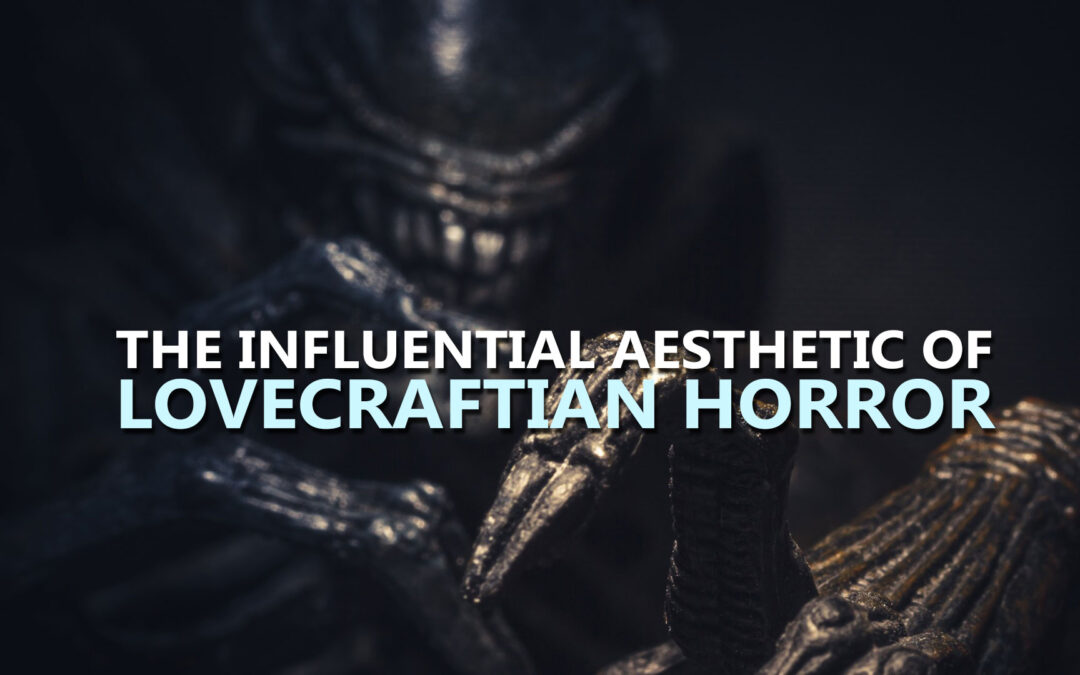The Influential Aesthetic of Lovecraftian Horror
H.P. Lovecraft is among the most influential authors of horror in the realm of fiction and cinema. Lovecraft, regarded as one of his century’s best authors, has transformed how we perceive sheer terror to be a genre. Lovecraft was never fearful of taking chances or experimenting among the pioneering horror writers of his day, and his influence and reputation are still remembered fondly among readers and fans of the genre all over the world. He was credited for many of the world’s best supernatural horror productions. He also discussed key aspects in his writing including destiny, prohibited knowledge, the influence of foreign powers, faith, and race, etc. He started his career by writing several short stories, which had a significant number of them being adapted into pop culture, and was responsible for a wide array of poems as well.
Lovecraft was one of the most authoring authors ever. There’s no questioning that. A history of horrors, including Stephen King, Ramsey Campbell, and Alan Moore, had a deep influence on him. But Lovecraft’s presence should not only be felt in the world of authors – it has influenced movies. Although we still have yet to enjoy a thorough film adaptation for Lovecraft, his signatures are overwhelmingly visible in countless sci-fi and horror movies in recent times. The ionic architecture of HR Giger for the extraterrestrial films was influenced heavily and motivated the production of The Thing by John Carpenter. Guillermo Del Toro, a widely-praised independent filmmaker, also listed Lovecraft as a key factor of inspiration for his work.
Unlike common belief, Lovecraft was not even a lonely shut-in as an adult, but had a group of acquaintances and was moving around and beyond New England. In his youth, however, he was hit by a mystery illness that always confined him at home and ultimately caused the poor author to quit school (that may have been psychiatric in nature). Lovecraft was an innovative genius, and he used this time in solitary confinement to educate himself in many aspects and developed a serious interest in science, especially in astronomy.
Lovecraft enjoyed historical sciences and literature, but he was against a litany of unusual things. Included in it is seafood. During his childhood with his mom and aunts, he was pampered, allowing him to pursue his own sleeping and eating tendencies. This might explain why Lovecraft retained a five-year-old’s taste in his professional life, enjoying candies while avoiding more appropriate food for adults. however, his dislike for fish was so intense that the reasoning appeared to defy any and all explanation, considering that many of his literary monstrosities eventually took the shape of marine biology and sea-themed appearan
One of his most popular novels, “The Call of Cthulhu”, has gained a worldwide following and is now a certified cult classic, with a range of products and interactive media based on the plot. Picture it out in your head- a person whose celestial fantasy is so plausible and strong that it amasses thousands of followers almost in a religious way, in which die-hard fans build practices and traditions based on the fictional horror sensation. Nowadays, in modern pop culture, art, cinema, and many other mediums, Lovecraft’s signature influence is not that hard to spot, as the popularity of the themes explored in his books cemented a long-lasting and impactful curiosity among readers and fans of the genre in nearly every reading and writing community on our planet, planting the seeds for the new generation and iterations of his legacy that lives on in modern art. One of the most noteworthy works of art influenced by his legacy is the Utgarda Series by critically-acclaimed author Joab Stieglitz, whose expertise in RPG and espionage video games coupled with his taste for good-old horror and Lovecraft is highly apparent in the nature of his literary content.
Throughout the history of literature, there have been several prominent scholars and intellectuals who were fortunate enough to grace us with their expressive excellence, and H.P. Lovecraft is no doubt one of them. He is one of the identities that altered the way we see things- in particular, the modern perceptions towards terror and discover new things that frighten us as individuals. It’s highly evident in the literary prowess and brilliance of the writers and creative geniuses which he inspired are direct testimonies to how encouraging Lovecraft was in storytelling.


Recent Comments